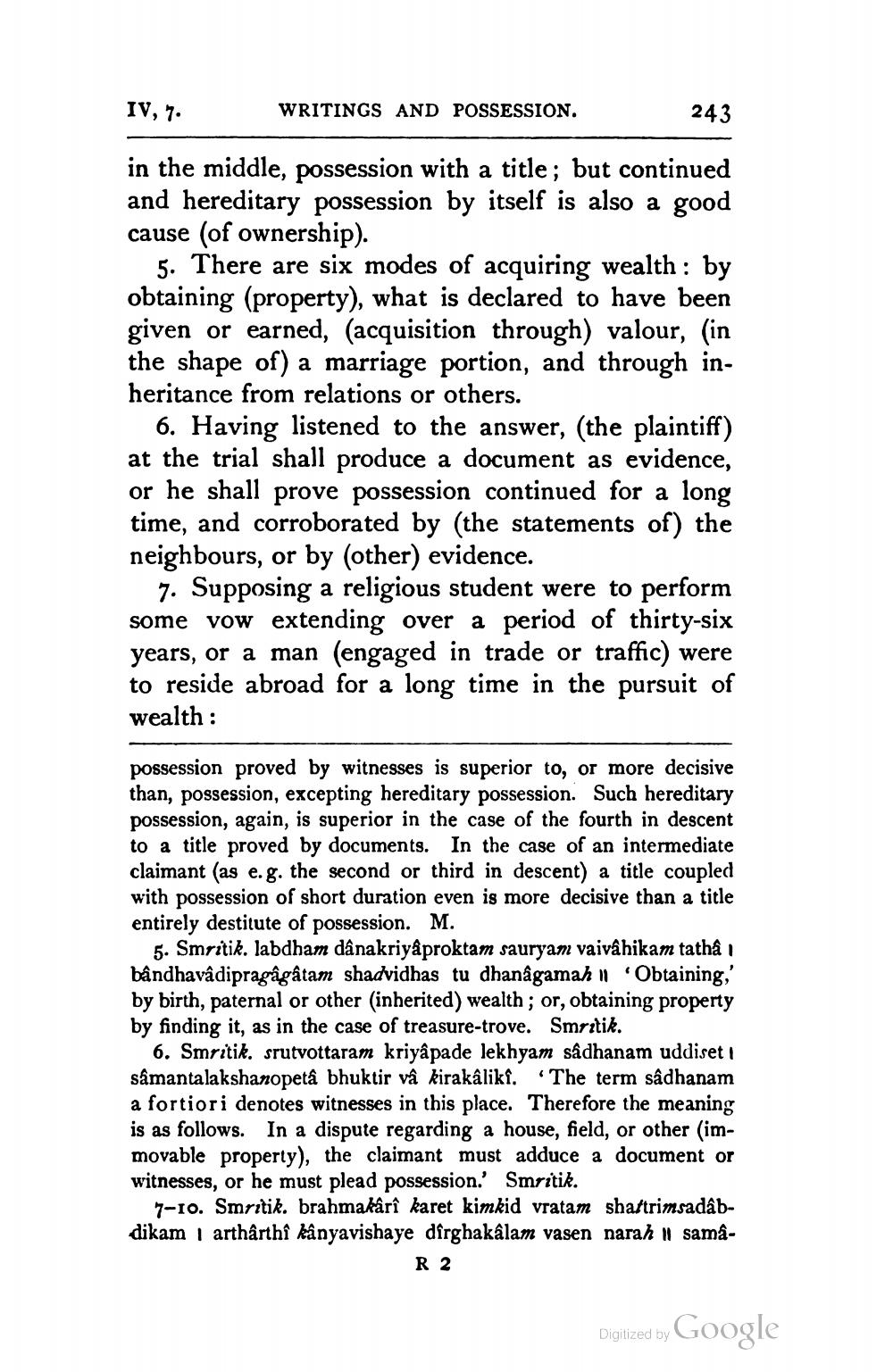________________
IV, 7.
WRITINGS AND POSSESSION.
243
in the middle, possession with a title; but continued and hereditary possession by itself is also a good cause (of ownership).
5. There are six modes of acquiring wealth : by obtaining (property), what is declared to have been given or earned, (acquisition through) valour, (in the shape of) a marriage portion, and through inheritance from relations or others.
6. Having listened to the answer, (the plaintiff) at the trial shall produce a document as evidence, or he shall prove possession continued for a long time, and corroborated by the statements of the neighbours, or by (other) evidence.
7. Supposing a religious student were to perform some vow extending over a period of thirty-six years, or a man (engaged in trade or traffic) were to reside abroad for a long time in the pursuit of wealth :
possession proved by witnesses is superior to, or more decisive than, possession, excepting hereditary possession. Such hereditary possession, again, is superior in the case of the fourth in descent to a title proved by documents. In the case of an intermediate claimant (as e.g. the second or third in descent) a title coupled with possession of short duration even is more decisive than a title entirely destitute of possession. M.
5. Smritik. labdham dânakriyâproktam sauryan vaivahikam tathai bândhavâdipragagātam shadvidhas tu dhanagamah 'Obtaining,' by birth, paternal or other inherited) wealth; or, obtaining property by finding it, as in the case of treasure-trove. Smritik.
6. Smritik. srutvottaram kriyapade lekhyam sadhanam uddiset i samantalakshanopeta bhuktir vâ kirakalikî. The term sâdhanam a fortiori denotes witnesses in this place. Therefore the meaning is as follows. In a dispute regarding a house, field, or other (immovable property), the claimant must adduce a document or witnesses, or he must plead possession.' Smritik.
7-10. Smritik. brahmakârî karet kimkid vratam shattrimsadabdikam | arthârthî kânyavishaye dîrghakâlam vasen narah N sama
R2
Digitized by Google




